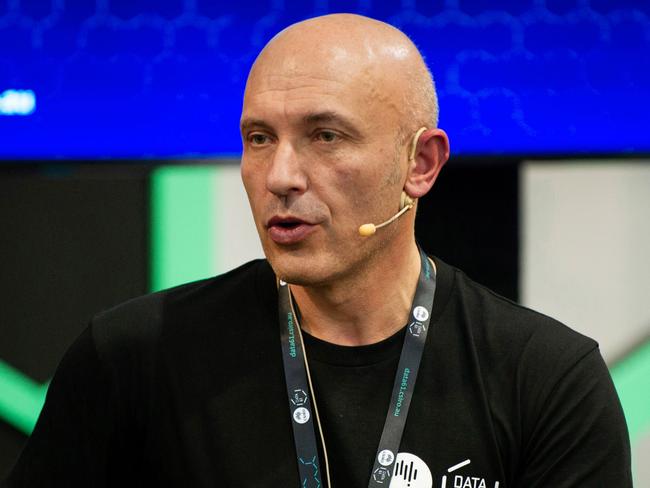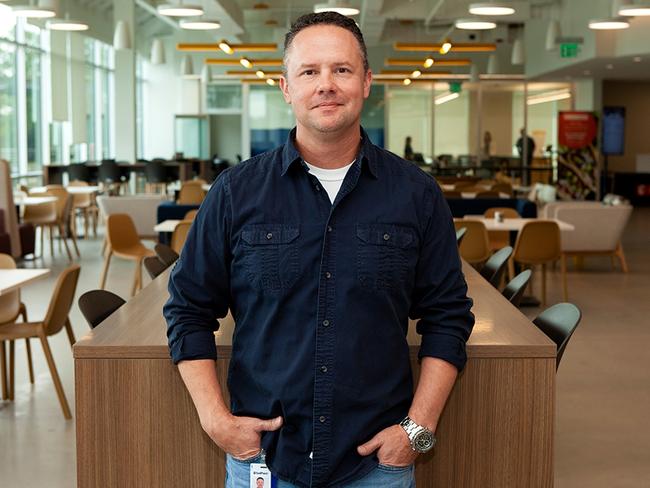Where the jobs are growing in Australia
One group of professionals is forecast to grow 20 per cent over the next five years, creating more than 63,000 extra jobs across Australia.

Careers
Don't miss out on the headlines from Careers. Followed categories will be added to My News.
Tech-savvy Australians are in huge demand, with more new jobs expected for ICT professionals over the next five years than for education or nursing professionals.
Although information and communication technology roles are likely to be very technical, experts say it is not too late for career changers and university graduates with seemingly unrelated degrees to move into the growing field.
Federal Government modelling forecasts the number of ICT professionals will grow by more than 20 per cent in the five years to May, 2024, creating 63,200 extra roles.
That is more new jobs than is forecast for education professionals (57,900 more roles) or nursing and midwifery professionals (40,900).

The latest Hays Jobs Report reveals particular employment demand for cloud engineers, network engineers, security specialists, end user support professionals, full stack software engineers, data scientists and robotic process automation specialists.
**SCROLL DOWN FOR LIST OF TOP-PAID ICT WORKERS**
Meanwhile, a recent CSIRO report on artificial intelligence finds the number of AI-related jobs in Australia have increased tenfold over the past five years and will need to at least quintuple again in the next decade.
“Australia currently has 6600 AI specialist workers,” it states.
“We estimate that by 2030 Australian industry will require a workforce of between 32,000 to 161,000 employees in computer vision, robotics, human language technologies, data science and other areas of AI expertise.
“There is a wide range of future possibilities due to uncertainty about the extent of scientific advances and the extent of technology adoption by industry.”

CSIRO’s Data61 machine learning group leader Dr Richard Nock said his field is rapidly expanding.
“This increase in the job market for AI and machine learning is going to be very, very significant (and) it’s not just going to be about cars or planes … there is going to be (a lot of applications).
“One good example you wouldn’t expect is the diagnosis of mental health disorders.
“AI and machine learning can be used to relay more accurate diagnosis of the triggering of these kinds of disorders.”
Dr Nock said although he was mathematically-minded in high school, this is not necessarily a prerequisite for a career as an AI specialist.
“I think there is a place and possibility for absolutely everybody who has some intuition about what we can do with data and good capabilities putting it to work,” he said.

Similarly, SailPoint chief information security officer Charles Poff was introduced to cybersecurity when he was just 12 but said people of all ages and backgrounds can find a way into his field.
“Interest in cybersecurity and technology can start young or even later in life,” he said.
“It’s up to us – parents, teachers, friends and the security community – to nurture it if there is a natural desire there to get involved with technology.”
Poff said cybersecurity is one of Australia’s most promising growth sectors, with the potential for almost 17,000 additional workers to be needed by 2026.
He recommends high school students considering the career should learn a programming language, such as Python; become familiar with cloud computing; and take part in Capture the Flag exercises – competitions between security professionals and students learning about cybersecurity.
Meanwhile, potential career changers coming from unrelated fields can get a taste of cybersecurity by shadowing an IT employee at their current workplace.
“It is a great way to see if you will enjoy the work and see if you have what it takes,” he said.
“If you didn’t get a cybersecurity degree in university or are in a role seemingly worlds away from cybersecurity, that’s OK.
“We see this a lot and non-computer degrees can be an asset.”

There will likely be some upskilling involved, though.
“Cybersecurity is not rocket science but it does take passion and craft,” he said.
“I recommend that new folks to the industry choose a certification in a topic or skill
they like and run with it.
“I also suggest volunteering to participate in projects that are IT-related, especially if there is a security component.
“You never know what kind of doors will open when you put yourself out there.”
READ MORE EMPLOYMENT NEWS IN THE CAREERS SECTION OF SATURDAY’S THE COURIER-MAIL, THE ADVERTISER, THE DAILY TELEGRAPH AND THE HERALD SUN
Originally published as Where the jobs are growing in Australia
